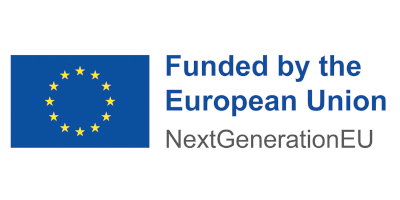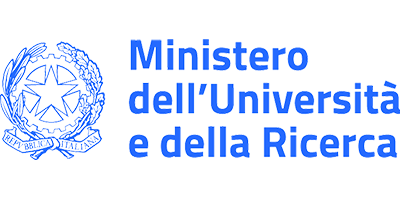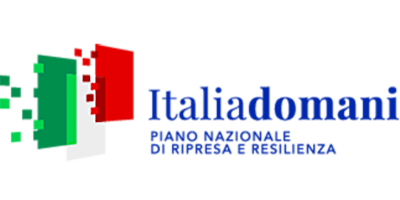Meet our Young Researchers (PNRR)
Research results
In order to implement the Italian Recovery and Resilience Plan (PNRR), the Ministry of University and Research (MUR) finances the assignment of at least 300 research fellowships to young researchers to promote their entry in or return to Italy.
The 2022 PNRR Young Researchers call (link to the Young Researchers Notice - ITA) offers funding for researchers belonging to one of the following categories:
- Principal Investigators of the European Research Council – ERC Starting grants within the Horizon 2020 and Horizon Europe Framework Programs who have chosen foreign Host Institution as their location.
- Grantees of Marie Skłodowska-Curie Individual Fellowships under the Horizon 2020 Framework Programs and Marie Skłodowska-Curie Postdoctoral Fellowships under the Horizon Europe Framework Programs.
- Researchers who have obtained a "Seal of Excellence" by participating in Marie Skłodowska-Curie Individual Fellowships and Marie Skłodowska-Curie Global Postdoctoral Fellowships, as part of the Horizon 2020 and Horizon Europe framework programs.
Candidates are required to select one Italian University or Public research body as Host Institution.
Projects submitted by SoE candidates have a maximum duration of 24 months, while those of MSCAs have a maximum duration of 36 months.
The researchers, whose projects are eligible for funding, are recruited by the Host Institution in non-tenured assistant professor positions pursuant to art. 24, paragraph 3, letter a), of the Law of 30 December 2010, n. 240.
Funded projects
Within the 2022 call, Ca' Foscari has been selected as Host Institution by 14 researchers from the Seal of Excellence line and by 3 candidates from the Marie Skłodowska-Curie Action line.
Researchers "Seal of Excellence"

Kathrin Bachleitner
SYRIA - The effects of conflict and displacement on national identity. The case of Syria.
The proposed research project theorizes on the effects of conflict and displacement on national identity. It develops a novel, interdisciplinary framework for International Relations (IR) and employs it to explain the case of contemporary Syria. It explores the new meanings that the Syrian identity takes on as a result of the ongoing civil war and its accompanying waves of refugees. It collects Syrian 'narratives of conflict' to understand how ordinary Syrians draw the boundaries around their national in-group. This information will be crucial for any sustainable peace settlement as well as for the legitimacy of a future Syrian state. The findings obtained from this research thus could be useful for the EU’s ongoing mediation efforts and its European Neighbourhood Policy (ENP), in addition to having broader implications for the academic understanding of national identity change amid conflict in IR theory.

Martina Ceolin
ConTexts - Texts in Contexts. Manuscript Transmission and Generic Hybridity in the 'Late' Íslendingasögur
Within the rich and diverse literary heritage that medieval Icelandic sagas constitute are the so-called 'post-classical' or 'late' Íslendingasögur (Sagas of Icelanders), a group of texts from the fourteenth century that are attested primarily in manuscripts from the fifteenth. They are remarkable in many ways, including that they play upon literary conventions and they defy strict categorisations of genre. However, scholars have so far largely neglected them for the same reasons, disregarding them as extravagant or because they are challenging to consider from the genre perspective.
The main objective of this project proposal is to offer a better comprehension and thus also a re-evaluation of these largely neglected texts, by studying them at once individually and from within their manuscript contexts. The focus will be on the characteristics they display, notably in terms of genre, and on the intertextual connections that can be established between them and the often diverse material they are copied alongside. The socio-cultural contexts of production and use of the texts and their manuscripts will also be investigated. The objectives will be achieved by adopting a multifaceted perspective, involving genre theory, material philology, and history of mentalities. Reading these sagas within their material contexts (within manuscripts) will shed light on both their individual nature and on the dynamics characterising the codexes in which they appear. In turn, this will provide us with clues that can be used to figure out the hidden logic embedded in each specific collection of texts, while possibly also disclosing information about the respective contexts of production and use. The new knowledge the project will yield is a novel and thorough study of previously neglected texts, which will promote their investigation as legitimate and interesting products of their own time, as well as crucially contribute to the critical debate and to future studies in the field.
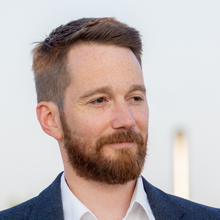
Harald Edinger
RUSS STRAT AMBIGUITY - Strategic Ambiguity in Russian Nuclear Posture
This research examines the evolution of Russia's nuclear posture by focusing on 'strategic ambiguity'. Although first described by American strategists, it is contemporary Russian nuclear signalling that is most representative of the concept. Edinger argues that its leadership has leveraged strategic ambiguity to exploit adversaries’ risk aversion and fear of escalation, while preserving its credibility by avoiding more concrete threats in line with the country’s declaratory policies. Most assessments of Russian nuclear strategy are based on interpretations of its doctrine and associated military debates. In this project, however, the focus is on political statements by the president, prime minister, foreign minister, minister of defence, or the Security Council. Using a combination of discourse analysis and causal-process tracing methods, Edinger studies the evolution of officials’ statements involving nuclear signalling, particularly during periods of heightened tensions between Russia and the West. Ambiguity forms the basis of deterrence theory. Yet, no systematic, book-length account of it exists – neither as an empirical guide, nor a theoretical exploration. Russian strategic culture serves as a basis for building a theory of strategic ambiguity – taking into account the risk tolerance of the Russian leadership, corresponding risk aversion of Western target audiences, as well as the costs of ambiguous signalling. The theory proposes sources and purposes of ambiguity (e.g., inconsistencies between doctrine and public statements, religious rhetoric, nuclear-conventional entanglement) and probes their plausibility by analysing episodes of nuclear signalling. Theoretical propositions are deconstructed and substantiated by reference to the pertinent literature in strategic studies, political psychology, and interdisciplinary scholarship on emotion and risk assessment – with the intention of generating more general hypotheses on the use of strategic ambiguity.
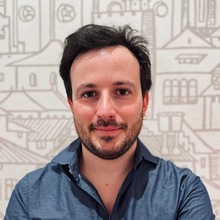
Alberto Fabris
GlobalIngoli - Francesco Ingoli (1578-1649) as Political Thinker and Global Theorist
The GlobalIngoli project aims to reassess Francesco Ingoli’s significance as a political thinker through the first philosophical and conceptual analysis of his intellectual production as General Secretary of the Congregation de Propaganda Fide, and particularly of his Relazione delle Quattro Parti del Mondo (~1633). In this text, Ingoli combined data and information from missionary sources and erudite treatises with his reflections about worldwide geography, politics and anthropology, proposing a new perspective on newly discovered regions. Despite the importance of Ingoli’s work, attesting to the deep resemantisation of political space that resulted from 16th and 17th-century geographical discoveries, an in-depth assessment of his political thought from the perspective of political philosophy is still largely missing. Combining a historical-philosophical approach with cultural history, international early-modern studies and global history, this project aims at 1) situating Ingoli’s Relazione in the context of 17th -century political debate; 2) investigating Ingoli’s approach towards the new political space resulting from geographical discoveries; 3) retracing the explicit and implicit sources of the Relazione to shed new light on the impact exercised by extra-European contributions on Western culture and contribute understanding the early modernity as a global phenomenon.
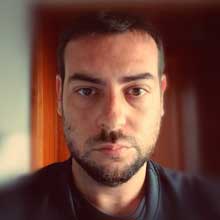
Facundo Norberto Bey
HUMANS - Humanisms within and beyond the Nation-State. An Interdisciplinary Inquiry on The Philosophical and Ideological Interpretations of humanitas in German Rediscovery of Plato's Educational Thought
What conceptions of the human being can we identify in the politico-philosophical exercises that ‘translated’ Platonic paideía into German Bildung between 1919 and 1945 without neglecting neither their historico-political connotations and possible repercussions, nor falling back into archaic (worryingly although present) figures like race, body, people, or nationality? What kind of utopian humanisms and what philosophical conceptions of political education can we conceive today beyond the Nation-State framework? This research focuses on how Plato’s political thought had been consolidated as the ground for three major theoretical ruptures within, beyond, and against the different German 'humanist' and philhellenist currents that developed between 1919 and 1945. HUMANS builds on Bey's research and expertise on Plato’s political thought reception in Germany to address the theoretical lacunae consequence of methodological one-sidedness. Thus, Bey considers it central to this research to adopt an interdisciplinary reception theory approach in order to address historically and philosophically the complexity of the conditions for which Plato’s work became meaningful during the Weimar and Third Reich times. Bey will address specifically the existing theoretical "gaps" from an interdisciplinary framework able to work on 3 levels: the philosophical, the philological, and the historical. HUMANS also contributes to advancing research by broadening our contemporary understanding of Plato’s political thought in the light of the pressing current migrant/ethnic discrimination phenomena in Europe, aiming to empower non-scholar audiences (especially victims of discrimination).
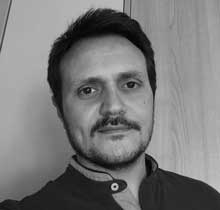
Daniele Ferraiuolo
InSignO - Inscriptions and Signs as devotional markers along the routes Of faith (7th-11th centuries)
As the cult of relics spread, between Late Antiquity and the Early Middle Ages, all devotional centers of Western Europe – on the example of some important royal sites (Saint Médard of Soissons, Saint-Denis of Paris, Saint Ambrose of Milan) – prepared to receive many pilgrims. The space undergoes radical transformations to enable visitors to access the main sacred foci whose visibility was made possible by "markers" represented by inscriptions and signs. This proposal seeks to analyze the main types of devotional markers located at shrines along the pilgrimage routes of Italy and France between the 7th and 11th centuries. The goal is to develop the first survey of this type of testimonies and to begin the construction of a long-term Digital Archive. InSignO will focus on the following general objectives: 1) Identifying the main types of markers by defining their functions (inscriptions indicating relics, funerary signacula, liturgical markers etc.); 2) Analyzing the markers’ formal, textual and graphic characteristics, in order to recover information on their original spatial perception; 3) Overcoming the classic approach to devotional practices, giving the markers the role of important sources, worthy of being considered alongside the conventional sources; 4) Creating a Digital Archive to have a solid basis for future research developments. With a multidisciplinary interpretation, this project aims to examine several types of sources to reconstruct the markers' visual perception bearing in mind the conditions of the environment and the context of reference. InSignO envisages the intersection of data from analyzing markers (typology, writings etc.) with the material (architecture and archaeological) and textual ones (medieval pilgrims' travel diaries). The Digital Archive, linked to a GIS, ensures the management of a wide variety of data (photos, drawings, descriptions, videos), research interoperability and long-term preservation.

Inga Jonaityte
I.COPE.BEST - Financial Technology Inclusion in the COVID-19 Pandemic Era: a Behavioral Economics Perspective
Financial Technologies (FinTech) provide new ways to convey financial services, are transforming financial industry, and make consumers face increasing responsibility in managing personal finances and making optimal economic decisions. FinTech solutions are introduced at an unprecedented rate and understanding how consumers perceive, comprehend, and adopt them is a complex topic of growing importance. This landscape is further complicated by the massive influence of the COVID-19 pandemic on consumer financial behavior. I.COPE.BEST aims to: Assess FinTech risks and challenges consumers face in financial decision-making; Expand the understanding of how FinTech interacts with the processes underlying consumer financial behavior; Explore the potential of FinTech in facilitating financial inclusion and improving economic decisions; Identify useful descriptors and provide possible solutions that could help everyone take full advantage of these technologies. Special attention is on analyzing the behavior of less-tech-savvy and age- or gender-gap-affected consumers, such as women whose financial decisions in the COVID-19 era are affected further by the concern of career disruptions. These objectives are addressed using an experimental approach focusing on behavioral economics and consumer psychology, and including open-science and citizen-science practices. Experiments are based on online survey questionnaires and crowdsourcing, and rely on the development of a flexible game-type platform crafted to (i) distil the main challenges that consumers face when making decisions and (ii) estimate the causal relationships. Although this platform specifically mimics robo-advisors and personal banking environments, it is flexible and could be used for other online and in-the-lab behavioral studies. Ultimately, it is designed to provide the citizens open-access evidence/tools to understand, appreciate, tackle, but also "control" the opportunities offered by fair and inclusive FinTech.

Morris Karp
MOST - Money and Sovereignty Today
MOST investigates from a philosophical perspective the transforming relationship between money and sovereignty due to the emergent circulation of digital currencies, both private and national. The relationship between money and sovereignty appears today on the verge of an unprecedented transformation: on the one hand, the diffusion of crypto- currencies opens the possibility of a progressive denationalization of money; on the other, the race towards central bank digital currencies - recently accelerated by the geopolitical tensions due to the war in Ukraine - creates the conditions for the end of the current monetary order, based on dollar supremacy. The omen of monetary fragmentation threatens the current monetary order, both in the sense of monetary anarchy within or monetary war among the states. By offering a timely analysis of this ongoing process, MOST supports the endeavors to regulate the monetary order transformation to achieve more inclusive and equal economic practices. On the assumption of a circular dynamic of interdependence between ideas and technologies, MOST is a solid interdisciplinary project that combines from a philosophical perspective aspects of Monetary History, History of Economic Thought, Political Theory and International Relations in order to study the evolving relationship between money and sovereignty. By offering a timely analysis of this ongoing process, MOST supports the endeavors to regulate the monetary order transformation to achieve more inclusive and equal economic practices. At the time when the European Central Bank is studying the possibility of issuing its own digital currency, MOST takes part in the development of the intellectual tools for the European Union’s strategic autonomy.
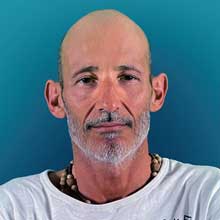
Marco Marsili
LEDI - Lawful Emerging and Disruptive Technologies and Warfare. Consistency with International Law and further Considerations and Implications
Science fiction pictured conflicts fought in outer space and conceived scenarios with artificial intelligence and self-learning machines that mimic humans. Sometimes science fiction offers imaginative solutions for the future. Technology is the key driver of warfare and blurs the traditional boundaries. Technological innovations have legal, ethical and moral implications. This project aims to check the compliance of (military) emerging & disruptive technologies (EDTs) with international law (IL), international humanitarian law (IHL), international human rights law (IHRL) and ethical standards in an altered geopolitical environment. The project comprises technologies that are distinctly military in nature and not civilian in application, usually because they lack useful or legal civilian applications, and civilian innovations that have been put to military use. EDTs are increasingly touching all aspects of life and have a profound impact on defence, security and civilian society. EDTs have a rapid and major effect on technologies that already exist and disrupt or overturn traditional business methods and practices and may revolutionise governmental structures, economies and international security. The research will scrutinise whether new rules are required, or if current rules are valid and can be used/adapted, and will formulate recommendations for policymakers, lawmakers and military leaders. The research topic involves main cross-cutting issues (the rule of law, fundamental human rights and ethical principles) and therefore requires an interdisciplinary approach: history, political science, political philosophy, sociology, law, ethics, neuroscience, robotics and computer science. The research aims to create new knowledge and to contribute to develop solutions for the global challenges of today and tomorrow. Because the future is now, this timely research aims to understand the present and to imagine future scenarios – that’s why it’s important.

Ivan Matijašić
MoCHA - Memories of Classical and Hellenistic Athens
The project considers the reception, changes and rearrangement of Classical & Hellenistic historiography on Athens in lexica, etymologica and scholarly works of the Roman imperial and Byzantine ages (2nd-10th c. CE). The purpose is to broaden our knowledge of the historiography on Athens reassessing the significance of fragmentary texts for the history of Athens (complementary with the preserved works of Herodotus, Thucydides and Xenophon) and the role of Greek lexicography and other scholarly works in transmitting these fragments. There are three main objectives: 1) set up an electronic archive for the storage of historical information on Classical & Hellenistic Athens preserved in Greek lexica, etymologica and other scholarly works; 2) focus on case-studies related to Athenian historiography through later sources; 3) consider the later reception of Athenian history and historiography. While both fragmentary Greek historiography and Greek lexicography are well-studied fields, their interactions remain largely unexplored. MoCHA aims at filling this gap focusing on the historiography on Athens through the lens of oft-neglected sources. This topic has never been considered because it involves competences in fields that are all too often separated: Ancient History & Classical Philology. My professional experience and publication record show that I am fully entitled to complete this research. The DUS at Ca’ Foscari University of Venice, with its Centre for Digital & Public Humanities and the internationally recognised strength in Greek history, literature and language, represents the ideal environment to carry out the research.

Federico Mazzola
CIAO - Creation and Investigation of Alternative Oxides
The project addresses the study of an oxide-based quantum material family that might generate unexplored physical phenomena, with relevance for electronics and spintronics. This study aims at engineering quantum phenomena driven by the action of the spin-orbit coupling in d-electrons oxides. Spin-orbit coupling can be thought as a coupling between the orbital motion and the electron spins and could be used to produce currents, i.e. spin-currents, without dissipation and with extremely low switching energies, realizing fertile ground for a vast range of applications. CIAO will adopt a bottom-up approach for the synthesis, nanofabrication and control of the material systems. It will first and foremost investigate the AO3 5d transition metal oxides. Despite their structural simplicity, these materials have been very little studied and could host remarkable electronic properties and collective states, arising from the large physical extension of the 5d electronic wave functions, orbital mixing, and spin-orbit coupling, expected to be much larger than the sister 3d and 4d compounds. Starting from preliminary proof-of-principle data on WO3, which demonstrate the feasibility of the synthesis in this family of materials, we aim to adopt a bottom-up approach to study how the electronic properties of these compounds are modified by the action of reduced dimensionality, strain, and quantum confinement. Mazzola will do this by exploiting the infrastructure at the Ca’ Foscari University of Venice for materials’ synthesis and characterization as well as the ongoing collaboration that the PI has established with the APE-LE group in Trieste (iom-CNR). With CIAO Mazzola will be able to reach unprecedented control on the electronic properties of this strongly spin-orbit coupled oxides family and advance the field towards precise and digital control of both structural and electronic degrees of freedom.
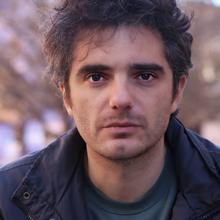
Samuele Mazzolini
POPINLAT - Populism and institutions in Latin America. A comparative assessment between Ecuador and Argentina
POPINLAT scrutinises the oft-contested and under-theorised relationship between populism and institutions through a comparative analysis of the recent left-of-centre processes in Ecuador (2007-2017) and Argentina (2003-2015). This research innovatively brings into the analysis also the post-populist phase in order to assess the resilience and embeddedness of the institutionality left behind by the populist rule (2017-2020 and 2015-2019, respectively) and, as a result, allows to theorise on the possibility and conditions of emergence of a "republican populism". In this sense, the current moment is particularly well-suited to carry out the proposed research. POPINLAT is situated at the crossroads of different disciplines, namely political theory, comparative politics and institutional analysis, thus using and integrating diverse methodologies. By looking at the institutional merits and shortcomings of the two cases, the project will cast light on the Latin American pink tide as a whole, and more importantly, provide a novel approach in populism studies, which can be applied to the European case as well. Having an excellent competence in populism and discourse analysis, and having worked in the Ecuadorian institutions during the period under scrutiny, I think of being in a favourable position to successfully complete this research and obtain professional maturity so as to become a leading academic in the field of populism studies.

Francesco Trevisan
INMOBILIS - Inequality and Mobility under Social Competition
Income inequality in OECD countries is at its highest level. In addition, the recent pandemic has not helped to close the income gap. This widening gap has spurred economists to investigate the subject more deeply. To their results, it is now widely believed that greater levels of income inequality in a country are associated with lower levels of social mobility. In a competitive society like ours, where jobs, promotions, and places at university are assigned through contest-like mechanisms, the rising inequality can have critical effects. For example, it is often mentioned that low-income individuals lack the resources to compete for high-income jobs, an issue also raised by David Sassoli (2020): "[...] for too many decades, those who are born poor remain poor. Social mobility, so important for my generation, has stalled for too long. That is why Parliament is calling for greater ambition." This project contributes to the debate by building an innovative dynamic model of contests that relates inequality to social mobility and growth. It relates inequality to social mobility by employing a model of noisy contests (Tullock, 1980; Clark and Riis, 1996) rather than a deterministic one (auctions). Further, it includes growth by assuming that the contest repeats over time and rewards are performance-dependent. The higher the players’ performances, the greater the sum of the prizes available. I expect to provide not only policy recommendations on how the appropriate use of redistributive policies and investments in education can sustain social mobility, well-being, and growth in the long run but also novel theoretical findings that can serve as a benchmark for policy suggestions and future empirical research on the topic.
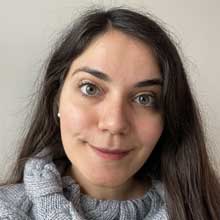
Giulia Zanon
Minims - Devotions on the Move: The Circulation of the Cult of San Francesco di Paola in Early Modern Mediterranean
This interdisciplinary project investigates how mobility shaped the devotion of new saints around the Mediterranean Sea (1545-1800c.). Studying the geographical and chronological diffusion of the cult of San Francesco di Paola (1416-1507, canonised 1519), this project will break new ground by evaluating the contribution of mobility and environment to the emergence of new cults and the ways in which lay piety, visual arts and patronage shaped devotions. Devotion to San Francesco di Paola was soon prevalent around the Adriatic coasts and the Mediterranean Sea, attracting a noteworthy diversity of devotees. MINIMS draws attention to the importance of mobility and environment in Catholic devotion and religious culture and how it ran in parallel with the broader importance of mobility in the early modern period, bringing a fresh perspective on historiographical debates. The interdisciplinary approach is an original methodological contribution, and it will open space for discussion on how we carry out historical enquiries across disciplines, taking inspiration from social sciences and the mobility turn. Combining methodological approaches from history and history of art, the project will place different genres of sources in conversation with one another. MINIMS will contribute to scientific advancement in religious, political, social and cultural European early modern history and art history. MINIMS will create new knowledge on the mobility of new devotions in Catholic Europe and the Mediterranean, and its interdisciplinarity and innovative methodology will be of reference for future projects in the field more broadly, thanks to diverse dissemination and communication activities, including the use of a GIS map to geo- visualise religious mobility across the Mediterranean in the early modern period. The research contribution will create international collaborations and networks which will overall benefit the diverse research topics.
Researchers Marie Skłodowska-Curie Actions
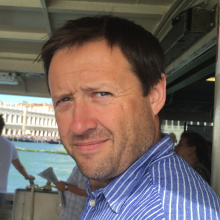
David Malcolm McOmish
CAPIENS - Cosmopolitan Academics, Pluralist Institutions, and the emergence of the New Sciences
Employing a blend of textual, philosophical and biographical approaches, this project will offer a robust account of the significant role played by 'cosmopolitan' academics in institutional settings from 1560-1630 - a crucial period for the development of the new sciences. The project will examine university theses, manuscripts lecture notes, and published material produced by a close network of academics who operated at institutions that possessed relative degrees of political and religious autonomy from the respective prevalent orthodoxies within their territories. The project will focus upon the impact of cosmopolitan scholarly culture in universities spread geographically across Europe, from the Polish-Lithuanian Commonwealth to Britain, the Kingdom of France to the Venetian Republic, and the German Princely states to Provence; all of which were situated across Europe's varied national and confessional divides. The ambivalent relationships the institutions had with the immediate political environment in which they operated fostered confessionally-alienated academic cultures that increasingly eschewed the contentiously philosophical for more neutral approaches. Edinburgh, Helmstedt, Montpellier, Paris, Padua/Venice, and Zamosc were centres at which the academics from differing national and confessional backgrounds were able to congregate and work. Close reading and cross-referencing between centres will offer insight into the impact these scholars made. A recent MSCA project (ENNSE) at Venice has shown that a distinctly cosmopolitan culture imported to Edinburgh through this network infiltrated the traditional Aristotelian framework for teaching in Natural Philosophy and began the process of replacing it with emergent scientific disciplines. This group of closely-connected scholars worked and were educated across all of these centres during this period. This project will show that the firm hold that the new knowledge took in Edinburgh, and the definitively 'modern' shape it took, must be understood in the politically-determined cosmopolitan cultures of the centres across Europe at which the network studied and worked.
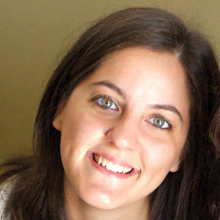
Deborah Nadal
MULTIBODI - A Multispecies Ethnography of Human-Animal-Environment Assemblages for Tick-Borne Disease Prevention in Italy and Slovenia
Lyme disease (LD) and tick-borne encephalitis (TBE) are the two fastest-growing tick-borne diseases, a group of infections that represent a major problem in the Northern Hemisphere and an emergent issue in the Global South. So far, LD and TBE prevention have mainly focused on individual protective measures, with limited effect. The design of strategies that involve the entire human-animal-environment community, through an integrated One Health approach, has received limited attention with regard to these two diseases, while it has already proven effective for many others. MULTIBODI aims at building a participatory, One Health-centred, interdisciplinary, intersectoral conversation, informed by ethnography, on multispecies community-based strategies for LD and TBE prevention in two highly endemic areas, i.e. the Belluno province in Northeast Italy and the Gorenjska region in Northern Slovenia. The specific objectives are: 1) To map and extend – while doing fieldwork – the diverse network of stakeholders, across different institutions, disciplines, sections of society, and geographical scales (local, national and European), interested in joining this paradigm shift; 2) To untangle the local, context-specific socio-economic-ecological complexities of disease transmission through the collection of qualitative data on the experience, knowledge, and perspectives of local people on how to cope with, and reduce, the risk of tick-borne diseases in humans and animals; 3) To share and discuss the knowledge co-produced in the first two phases through four community juries aimed at developing a One Health community-based strategy for LD and TBE prevention. MULTIBODI merges theories and practices from applied anthropology, medical anthropology and multispecies ethnography, and is inspired by posthuman studies on human-animal-environmental assemblages and the principles of active citizenship and community-based participatory research.

Nicole Tabasso
RON - Rumours on Networks
The proposed project aims to increase our understanding of the factors that allow rumours and misinformation to spread on (online) social networks. Given the global corona pandemic and the rise of the so-called "post-truth" society, the harm that misinformation may cause has been recognized, and it can hardly be overstated. Political examples of this harm abound. While the literature has come a long way in uncovering various factors that influence the diffusion of misinformation, it is still not perfectly understood. However, only increased understanding will allow us to fight the persistence of misinformation and rumours. In this project, Tabasso aims to employ theoretical, empirical, and simulation tools to (i) uncover motivations to share unverified information; (ii) model how ideological identity groups may form on a network, and (iii) analyse how specific network characteristics interact with information characteristics to either hinder or help the diffusion of information. This work is built on earlier work of Tabasso, funded through an MSCA fellowship, and is part of a long-term research subject, whose aim it is to find efficient ways to deal with the spread of misinformation without impacting freedom of expression.
Last update: 17/04/2024

